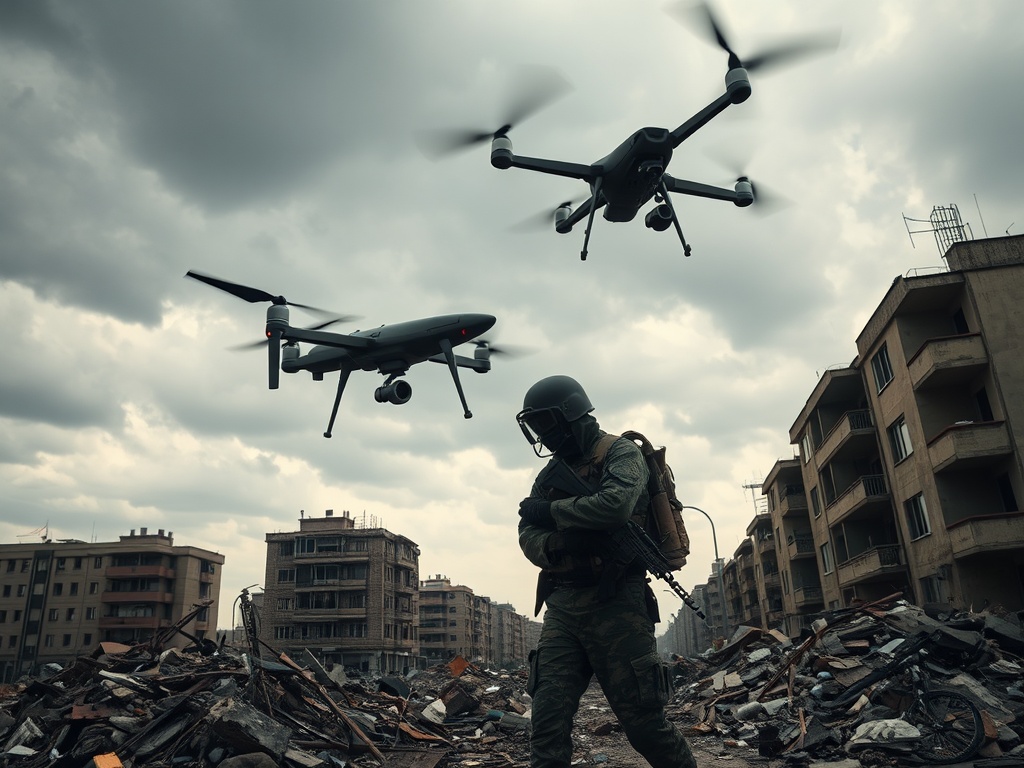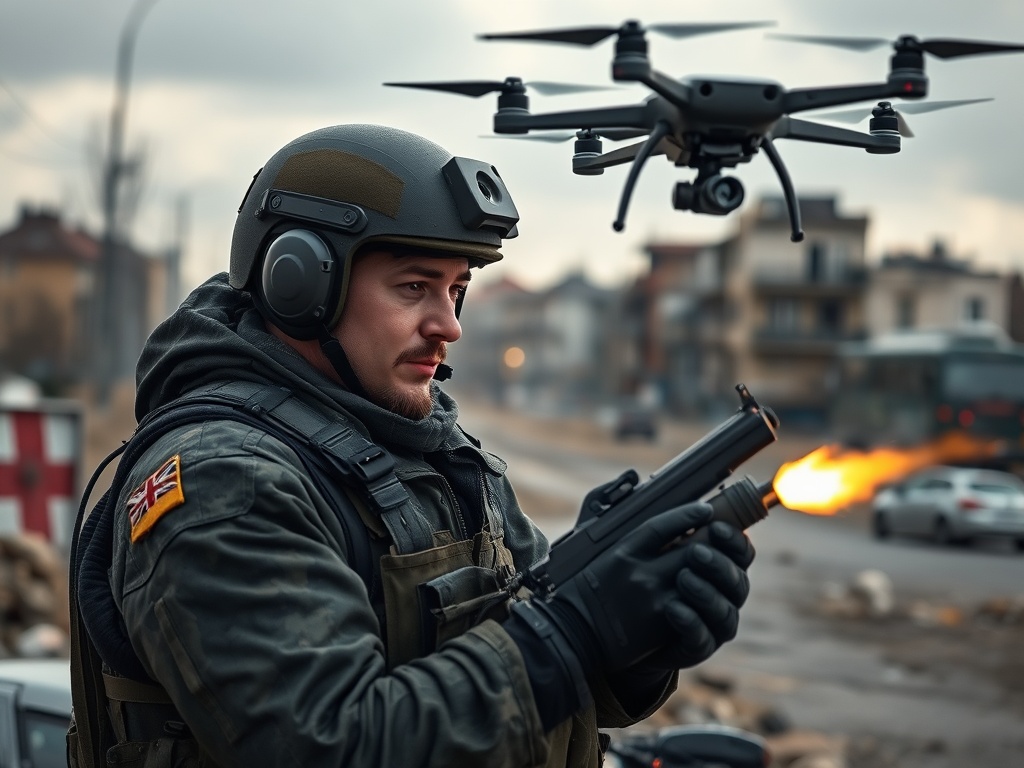British Bomb Disposal Expert’s Narrow Escape in Ukraine

A British bomb disposal expert, Chris Garrett, aged 40, had a harrowing experience in Ukraine, narrowly avoiding being struck by a barrage of Russian kamikaze drones during a nighttime attack. On Wednesday night, Garrett raced to the port city of Odessa after a series of Iranian-designed Shahed unmanned combat aerial vehicles unleashed devastating fireballs, targeting critical energy infrastructure.
As Garrett and his team quickly searched the area for casualties and worked to evacuate buildings, three additional drones detonated just 50 meters from their position, sending shockwaves near a tram line and a busy road. The chilling bodycam footage, shared with The i Paper, captures the ominous buzz of the drones as they approach before exploding on impact. In a desperate bid for safety, Garrett sought cover amidst the chaos.
Simultaneously, Ukrainian forces launched counter-battery fire, attempting to intercept the incoming drones. Garrett did not shy away from expressing his frustration towards former US President Donald Trump, criticizing him for appearing to side with “war criminal” Vladimir Putin. He raised concerns about whether the current US administration might consider arming Russia after Trump’s controversial remarks labeling Ukrainian President Volodymyr Zelensky a “dictator.”
In recounting his experience, Garrett said, “I couldn’t see where the strikes were coming in, and then eventually there was a large fireball that erupted in front of me. I’ve never had a Shahed flown at me, and to line that up, I’ve never had three in a row.” He admitted that the situation was concerning, as there was limited cover available in the middle of a main road. Spotting an open gate that had likely been blown open, he managed to duck behind a low wall, uncertain if he had chosen the right place to hide.
Garrett has been actively involved in Ukraine for seven years, specializing in defusing landmines and unexploded ordnance. He previously volunteered with the Ukrainian National Guard and is now affiliated with Prevail, a non-governmental organization dedicated to mine clearance training and medical support.
Despite the UK Foreign Office’s warnings against all travel to Ukraine, urging British nationals to leave when safe, Garrett remains committed to helping those in need. He stated, “I understand the risks at the end of the day, and I’m willing to make a calculated risk if it’s beneficial to supporting the people that might need that help.”
During the raid, Russian forces had painted the Shahed drones black to evade detection by Odessa’s air defense systems. Garrett was on the phone with another team member at a hotel, who was with his fiancée when the drone strikes began. He described how his phone cut out just as the first explosion occurred. “The Ukrainians were putting up a lot of fire at them last night. But it’s the middle of the night; it’s hard to hit a moving target when it’s black,” he noted.
After the attack, Garrett waited approximately 30 minutes before the first emergency services arrived on the scene. Ukraine’s air force reported a massive overnight assault by Russia, which included the launch of 14 missiles and 161 drones, with 80 of the drones intercepted.
Rising Threats and Evolving Tactics in Demining Efforts
In a previous interview with The i Paper in 2022, Garrett discussed the dangers faced by his unit as they sought to clear paths for wounded Ukrainian troops by locating anti-tank, anti-personnel, and butterfly mines. He described how Russian troops indiscriminately booby-trapped civilian buildings by hiding hand grenades in washing machine drawers.
As the war has progressed, the dangers of Garrett’s role have intensified, prompting a complete overhaul of operational strategies. With eight years of demining experience in Ukraine, he now focuses on training Ukrainian military combat engineers and security personnel to adapt to the changing battlefield landscape.
“Because of the threats from FPV drones now, and the threat from fiber optic drones, if you go within five or 10 kilometers of the frontline now, you are really running a risk of being targeted by Russian drones,” Garrett explained. He described how his previous role of supporting police and military operations has shifted due to the increased dangers.
Garrett expressed concern about the evolving battlefield, noting that new landmines and improvised explosive devices are regularly deployed. He voiced his frustration over Russian claims that their forces do not target energy infrastructure, highlighting a “real fear” in Ukraine regarding the potential loss of US support following Trump’s comments about Zelensky.
“Ukraine used to think that America was its friend and ally, wanting to support them. Now we’re seeing a complete role reversal, where the current administration appears to back an internationally wanted war criminal,” he stated. “What’s next? Is the US going to start arming Russia now that Trump has labeled Zelensky a dictator? I believe it’s time for Europe and the UK to take the lead.”
Garrett’s friend, Edward Scott, a 28-year-old British aid worker from Dorset, recently lost an arm and a leg in a drone strike, underscoring the grave risks faced by those working in the region.




